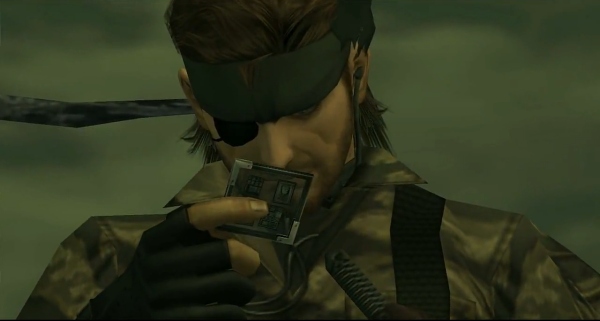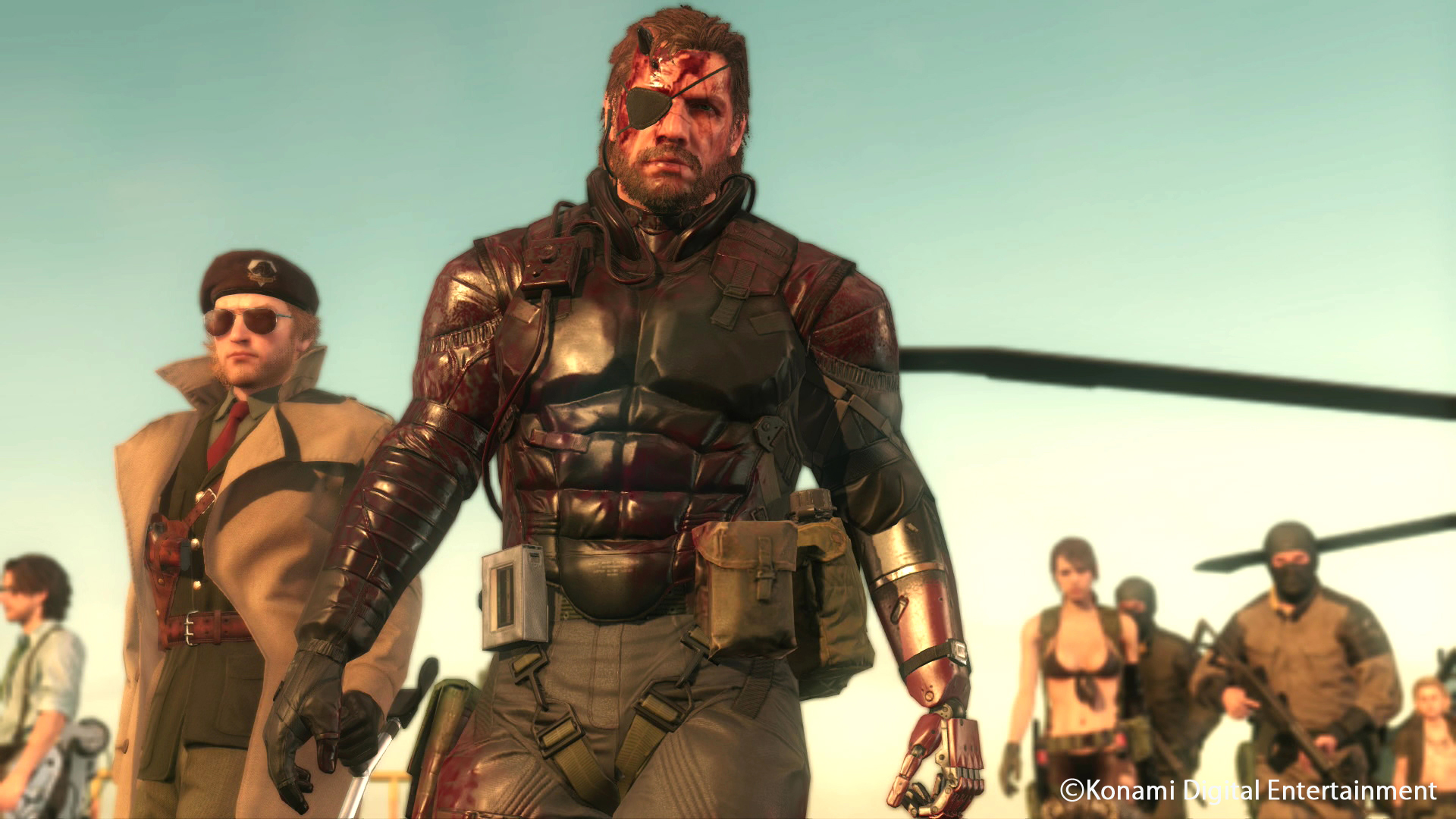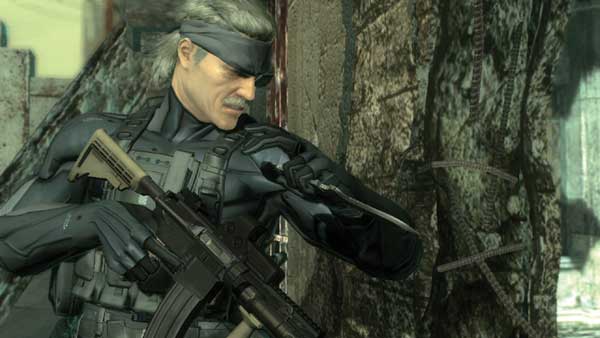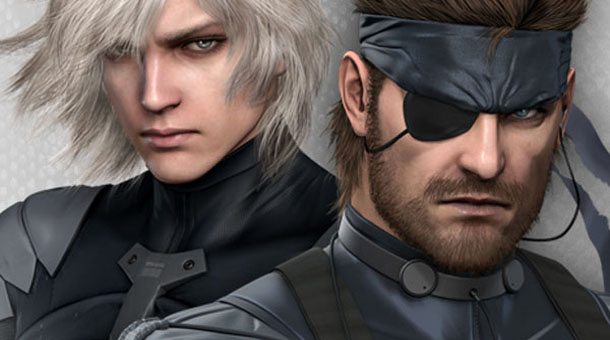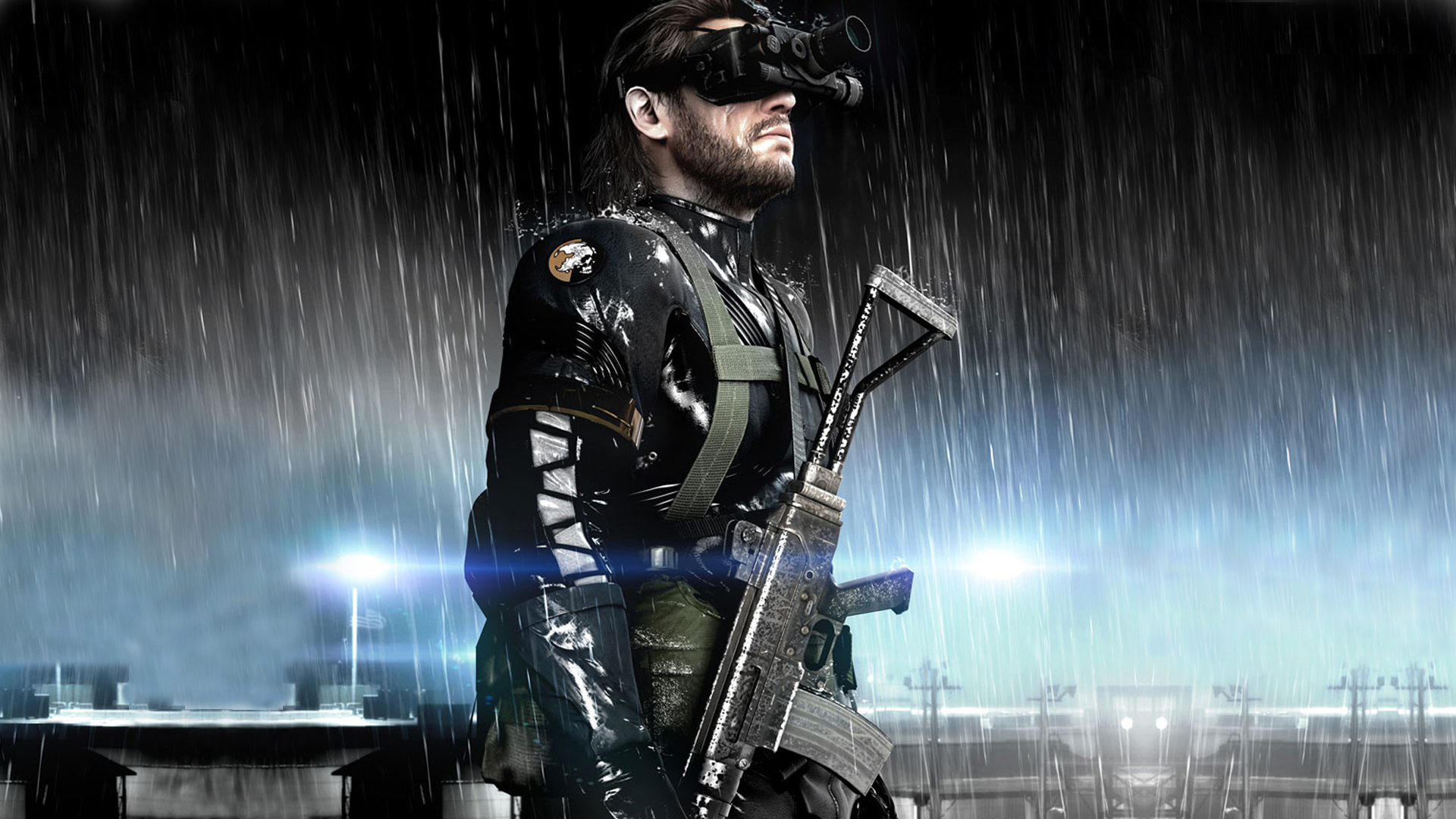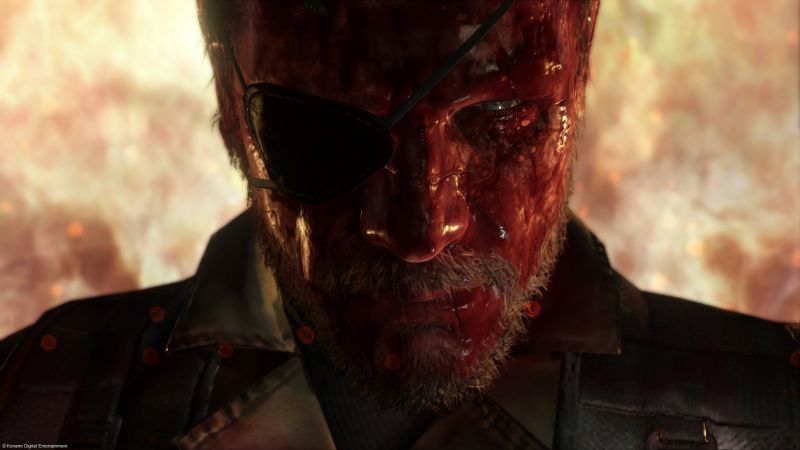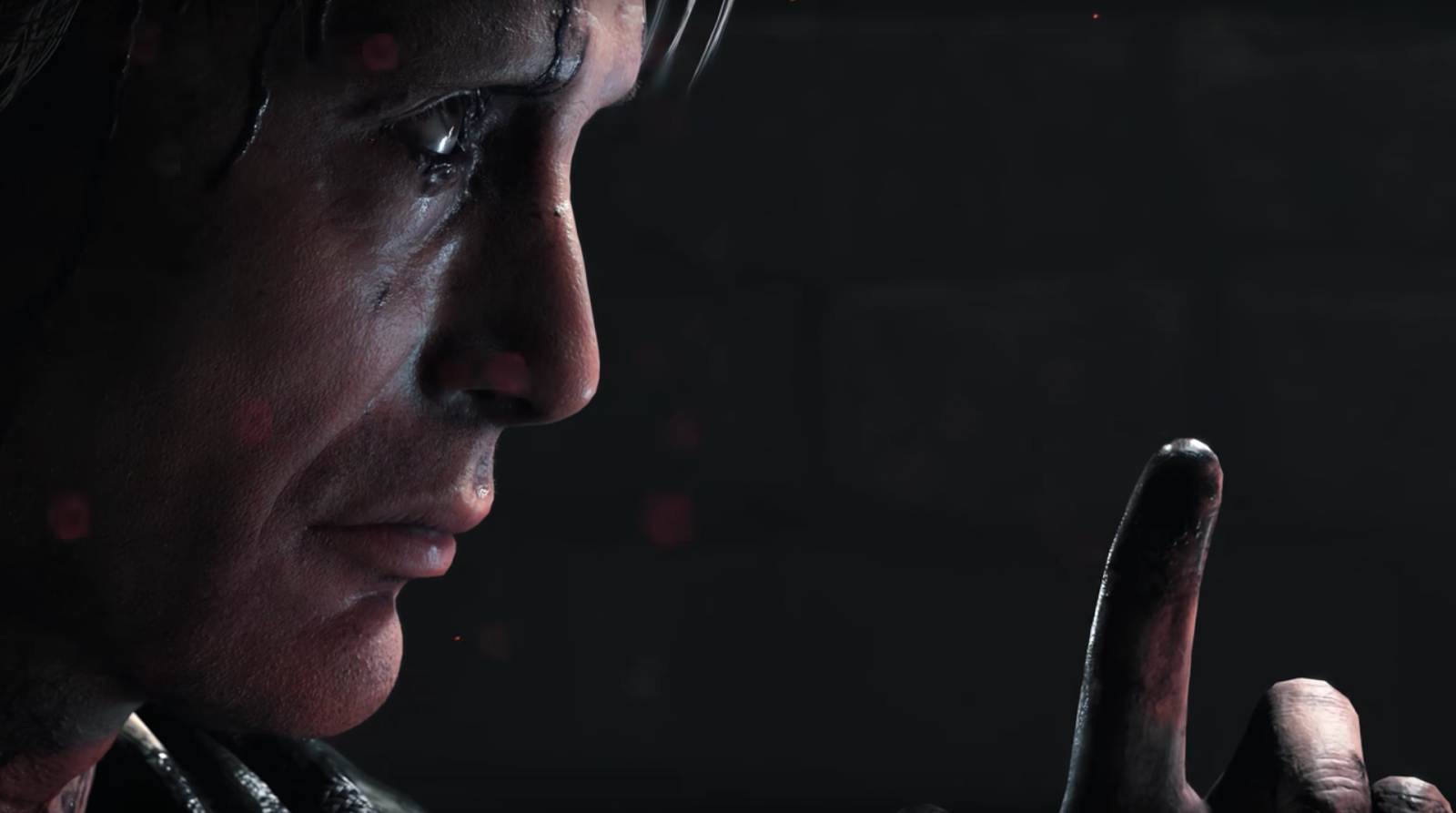
More and more throughout the years, video games have been growing as a stronger and more efficient medium of storytelling, and while there are several games that can be credited for making important strides in that respect, the one name that comes to mind more than most is Metal Gear Solid. In the last decade or so, franchises such as Mass Effect, Uncharted, The Last of Us, and The Witcher have all made significant contributions to video games as a storytelling medium, but Metal Gear Solid is, for the lack of a better term, their big boss.
Even when no one cared about stories in their games, even when the standards for a good narrative in this industry were ridiculously low, the Metal Gear games were doing things with their cinematic cutscenes and their elaborate narratives that very few other games were. For decades, now, Metal Gear Solid has been one of the pillars that this industry’s would-be storytellers have stood on, and for that, the series, and the people behind it, simply cannot be lauded enough.
This article contains spoilers for the Metal Gear Solid series.
"For decades, now, Metal Gear Solid has been one of the pillars that this industry’s would-be storytellers have stood on, and for that, the series, and the people behind it, simply cannot be lauded enough."
Like all things, though, Metal Gear Solid isn’t perfect- far from it. We at GamingBolt absolutely love this series – and we’ve clearly made no attempts to hide that – but there are some things that it has done over the years that bother me immensely. And sure, while we can point to single, isolated examples while speaking of this topic – such as the unfinished nature of The Phantom Pain, for instance – the one thing that bothers me more than most is the sudden and massive shift we saw in the franchise’s story and storytelling after Metal Gear Solid 3: Snake Eater.
And it truly is a massive shift- in more ways than just one. It’s a shift in style, a shift in tone, a shift in themes, a shift in focus, and most importantly, a shift in quality. As any fan of the series would tell you, the line between everything before Metal Gear Solid 3 and everything after it is ridiculously plain to see- it’s almost like someone flipped a switch. That’s not to say, of course, that the series totally went downhill after Snake Eater- honestly, there were parts of Peace Walker, Guns of the Patriots, and even The Phantom Pain that were just incredible, and rank among the best moments in the entire series. But in spite of these incredibly high highs, there’s one thing about the Metal Gear Solid series’ narrative and storytelling that cannot be disputed- that there’s before Snake Eater, and there’s after Snake Eater.
Something that illustrates that point perfectly is how after Metal Gear Solid 3, the series began to almost trip over itself to explain stuff that, honestly, didn’t really need explaining. I mean, it needed explaining in that it was unexplained, but it wasn’t like the story just couldn’t work without these explanations. Metal Gear Solid 1, 2, and 3 were full of quirky, weird stuff at every turn, supernatural story elements that lent an incredible sense of personality to the story, both in the minute details and from a larger perspective. The supernatural abilities of the Cobra Unit, the immortality of Vamp, the unearthly powers of Fortune, the telekinesis of Psycho Mantis- these were all things that were beyond the realm of possibility, but these weren’t things that anyone felt absolutely needed to be explained. No one ever looked at them and went- “you know what? This doesn’t work. They really need to explain this.”
"There’s one thing about the Metal Gear Solid series’ narrative and storytelling that cannot be disputed- that there’s before Snake Eater, and there’s after Snake Eater."
Why? Well, because up until a certain point in time, Metal Gear Solid used to be a series that was characterized by these fantastical, supernatural characters and story elements. These were things we just expected and had grown accustomed to, and as such, didn’t really need explanations for. After Metal Gear Solid 3, though, that changed- with Metal Gear Solid 4 came came a newfound focus on authenticity, a desire of being relatively more grounded in reality, and to achieve that, the series would tend to over-explain itself, sometimes even retroactively. An admirable notion, to be sure, but the results were far less so. Because, of course, this led to the birth of the ultimate deus ex machina, the one we all know as “nanomachines”, a plot device so laughably ridiculous that it quickly grew into a meme that even the franchise itself would go on to make fun of in Metal Gear Rising.
Because that approach, after all, just wasn’t what Metal Gear Solid needed, or even wanted. We didn’t need to know how the crazy vampire could survive being shot in the head multiple times, or how the tragic woman could deflect bullets. And even if we did – I’m sure millions may have been curious about why those things happened (I was too) – the series simply needed to do a much better job. Simply explaining everything away with “nanomachines, duh” just didn’t work. Admittedly, though, we do have to commend the series’ desire to tie up any and all lose ends as its story reached its conclusion- it’s rare, after all, for a franchise in any medium, much less in video games, to care that much and that deeply about its story. But seriously, that’s all that can be said about those efforts, because what they led to, unfortunately, was just not up to expectations.
In the aftermath of Metal Gear Solid 4 also came inconsistencies, big and small. In games like Peace Walker and The Phantom Pain, for instance, you can see technology that simply doesn’t exist in previous games, which are set years after these two. How does it make sense that people in the 1970s and 1980s are making use of supremely advanced technology, that somehow doesn’t exist in the 21st century? It doesn’t, of course. And sure, some might argue that that is a major nitpick rather than an actual inconsistency in storytelling- this medium is known for its ludonarrative dissonance, and to single out just Metal Gear Solid might seem a little unfair, even if the series does claim to have higher standards for storytelling than most other games.
"With Metal Gear Solid 4 came came a newfound focus on authenticity, a desire of being relatively more grounded in reality, and to achieve that, the series tried to explain things, sometimes even retroactively, via science. An admirable notion, to be sure, but the results were far less so."
The one thing that simply cannot be defended or explained away, though, is the mother of all retcons. You all know what I’m talking about- the infamous twist at the end of The Phantom Pain. The reveal that the guy we spent the entire game playing as – Venom Snake – was not the real Big Boss. He was just a body double- literally just “some guy”. And I’ll be honest here, I am one of the few people who can, on some level, understand what Kojima was trying to accomplish with the ending. The message that Big Boss’ fall from grace was not some horrific act of terrorism, but rather a repulsive betrayal of some of his most trusted advisors, is good drama- but it’s only good drama if it is executed properly.
The final twist of The Phantom Pain is one that can be made to sound extremely cool, like it makes perfect sense within the context of the series- and when I wrote GamingBolt’s Story So Far series for the Metal Gear games, that is exactly what I did. But while on paper it does sound cool, there are just so many reasons that ending doesn’t work. Even if we set aside the fact that the game failed to properly show us how this character turned into the warmongering terrorist that later games in the chronology would portray him as, the twist at the end still disappoints on so many other levels.
For one, it destroys the legend and character of Big Boss. More or less all the stuff that we used to attribute to the legendary Big Boss – which is basically everything after Snake Eater and everything before the original Metal Gear – was actually accomplished by just “some guy”. Other than Naked Snake’s exploits in Snake Eater and him setting up MSF and fighting off Hot Coldman in Peace Walker, everything else of value ever done by Big Boss was actually done by Venom Snake- other than Zanzibar Land, I guess. And such a betrayal of what is the franchise’s most important character feels inconsistent. It feels sudden, it feels unearned.
"The message that Big Boss’ fall from grace was not some horrific act of terrorism, but rather a repulsive betrayal of some of his most trusted advisors, is good drama- but it’s only good drama if it is executed properly."
In Metal Gear Solid 2, the fact that you spent the majority of the game playing as Raiden instead of Solid Snake worked. Sure, people cried foul about it back in the day, but when you really get down to it, it was executed really well. Because Raiden was an actual character, a person with his own story, his own arc, his own strengths and weaknesses. Even if you felt he was too annoying or too whiny, you still felt something about him. Whether your feelings toward him were positive or negative did not matter, because one way or another, you still cared at least a little bit. Why? Because he was his own person- this, incidentally, was also a major theme in the game, and this very theme was also used quite heavily in The Phantom Pain as well. In the Operation Intrude tape that Big Boss sends to Venom Snake, he claims that he is his own person, just how Solid Snake said that to Raiden at the end of Sons of Liberty.
But unlike Solid Snake’s proclamation, Big Boss’ message just doesn’t work. It doesn’t resonate with the player, because while the game claims that Venom Snake is his own person, he really isn’t. His very point was that he was an avatar for the player- he had no character, he was an empty husk, we as players had no investment in him as a person whatsoever. While both Metal Gear Solid 2 and 5 made the same claims to validate the existence of their unconventional protagonists, the former, unlike the latter, was actually able to back that up by being true to those claims, all the way from start to finish.
There was also the fact that for the entirety of Sons of Liberty, Solid Snake may not have been a playable character, but he was still right there with you, as an integral part of the story, and as an actual, prominent presence. The fact that you could view him from the outside as this legendary hero actually helped you settle into the role of Raiden, a person who was just as enamoured with Solid Snake as we, the players were. If nothing else, we could relate to him at least on that fundamental level- in simple terms, that was just good writing.
"While both Metal Gear Solid 2 and 5 made the same claims to validate the existence of their unconventional protagonists, the former, unlike the latter, was actually able to back that up by being true to those claims, all the way from start to finish."
So the question now, of course, is this- what changed? What changed after Metal Gear Solid 3? What the hell happened to mark such a sudden and noticeable shift in the style and quality of writing and storytelling for the series? Well, the way I (and many other Metal Gear fans) see it, there are mainly two major reasons for this drop in quality. The first reason, and possibly the more pertinent one, has to do with a man named Tomokazu Fukushima. Fans of the Metal Gear series are probably familiar with this name already, but just in case you don’t know who he is, Fukushima was, along with Hideo Kojima, the co-writer of several games in the series. He was integral to building the story of Metal Gear, and many feel that, after Kojima himself, Fukushima has probably made the biggest and most important contributions to the entire series. Well, maybe alongside David Hayter (the voice of Snake up until Metal Gear Solid V), but that’s another discussion entirely.
Fukushima was the co-writer of every Metal Gear Solid game up until Metal Gear Solid 3, and midway through Guns of the Patriots, he left Kojima Productions. Essentially, Guns of the Patriots, Peace Walker, and The Phantom Pain are missing the Fukushima influence that is so apparent in their predecessors. That is no coincidence. Because Fukushima was, in many ways, almost as vital to the series as Kojima himself. Okay, maybe not as vital, but his presence was certainly of extreme importance.
Because while Kojima is the nexus of everything in the series, it is Fukushima who most likely used to give it all shape. Kojima came up with all these crazy concepts, and Fukushima most likely gave them definition, shape, and form. Kojima is a genius, there is no doubting that much, but like every genius, Kojima also needs someone or something to hold him back from delving too deeply into crazyland. Fukushima was, in many ways, perhaps the one who tethered Kojima to writing and storytelling that made sense. He was perhaps the man who made sense out of Kojima’s craziness, the man who took his ambitious ideas and made them work. That much is apparent in how the same ideas just didn’t seem to work as well after Snake Eater. Metal Gear Solid 1, 2, and 3 showed the kind of restraint that only a good editor like Fukushima could instil, and it’s apparent from the exact opposite lack of restraint in the games that followed just how much of an impact Fukushima’s efforts to keep Kojima’s ingenious craziness on the straight and narrow had on the series.
"Metal Gear Solid 1, 2, and 3 showed the kind of restraint that only a good editor like Fukushima could instil, and it’s apparent from the exact opposite lack of restraint in the games that followed just how much of an impact Fukushima’s efforts to keep Kojima’s ingenious craziness on the straight and narrow had on the series."
And then there’s the second reason, which, perhaps, was even more detrimental to the series than Fukushima’s departure may have been- the fact that after Metal Gear Solid 3, Kojima just didn’t want to make any more Metal Gear games. He was fatigued, he was tired, he wanted to try out new things, but for some reason or the other, he somehow found himself being forced to repeatedly come back, again and again, to make yet another Metal Gear sequel. Metal Gear Solid 3 was supposed to be the last game in the franchise, and though Metal Gear Solid 2 left many mysteries unsolved and many questions unanswered, in Kojima’s original vision, that was exactly what he had intended. He had no intention of answering those questions, or solving those mysteries.
And yet, he was pressured into coming back for Metal Gear Solid 4 to finish up Solid Snake’s story, and then to come back for Peace Walker, and then The Phantom Pain. Each game was, for him, essentially something he had to do, not something he wanted to do, and something like that is bound to have a negative impact on any creative process. Maybe the only way he could try new things was to put them into Metal Gear, and ultimately, maybe he ended up doing just that on several occasions even when it didn’t make sense for that franchise. And really, after a certain point, can we really blame him for that? In spite of all his efforts, Metal Gear Solid was, for the longest time, his only creative outlet. If he wanted to try out new things and experiment with stuff, he had no choice but to do it with Metal Gear, whether it was a fit for the series or not. As a writer and a storyteller, fans of the series expected him to be careful about that level of consistency, but from some perspective, it’s hard not to sympathize with him. He did, in fact, on several occasions even receive death threats from people when at times it looked like he may not make a new game in the series. Developing a game under such a negative cloud has to have an adverse affect on the entire process. The fact that Kojima and his team were still able to make such excellent games in spite of all this is, to be frank, a little surprising.
None of this is to say that everything after Metal Gear Solid 3 was pure trash, of course. I strongly feel that Peace Walker’s story is among the best in the series, and no one would argue that many of the franchise’s most memorable moments come from games after Snake Eater– the RAY vs REX battle; the return to Shadow Moses; the story of Paz, one of the most interesting characters in the series; the fate of Huey Emmerich, a man as despicable as his son was loveable. Clearly, even after Metal Gear Solid 3, the series didn’t lose its penchant for the spectacular. It just became wildly inconsistent. Was it because of Fukushima’s departure? Perhaps. Was it because of Kojima’s unwillingness to work on the games in question? Probably.
"Kojima was fatigued, he was tired, he wanted to try out new things, but for some reason or the other, he somehow found himself being forced to repeatedly come back, again and again, to make yet another Metal Gear sequel."
But of course, that’s no longer the case. Hideo Kojima has broken free of the chains that bound him to Metal Gear. It may have been due to acrimonious circumstances (to say the least), but Kojima is no longer at Konami, and his creative genius is now unshackled. He is now, for the first time in more than a decade, making a game that he wants to make, not one that he has to, and the fact that a mind as brilliant as his is working on something that it truly cares about, and is passionate about, is incredibly exciting, to say the least. With Death Stranding, Kojima is starting from scratch, and he can literally take it wherever he wants to, do with it whatever he pleases, and that sort of creative freedom for a man as accomplished and capable as Hideo Kojima is a powerful weapon indeed.
Should we be worried that without an editor as skilled as Fukushima, Kojima might fall into the same traps that he did with MGS4, Peace Walker, and The Phantom Pain? Well, to be completely honest, it’s entirely possible. Hideo Kojima has, after all, been known to exert a little too much creative control over his projects, and sometimes the man just doesn’t know what’s good for the story and what’s bad. To say that Kojima can, at times, take things a little too far would be a massive understatement. But then again, this is probably something Kojima has been wanting to do for a long, long time, and we’re sure that this story has been sitting in his brain for years- stewing, and growing, and changing.
There is cause for concern, yes, but there is cause for concern with literally every single upcoming video game. If anything, Kojima’s excellent track record over the last two decades (or more) should be a reassurance. A reassurance that even if, with Death Stranding, he doesn’t deliver a good story (which he very well might, mind you), he will at least deliver an excellent game. If nothing else, that’s something to look forward to.
Note: The views expressed in this article are those of the author and do not necessarily represent the views of, and should not be attributed to, GamingBolt as an organization.








